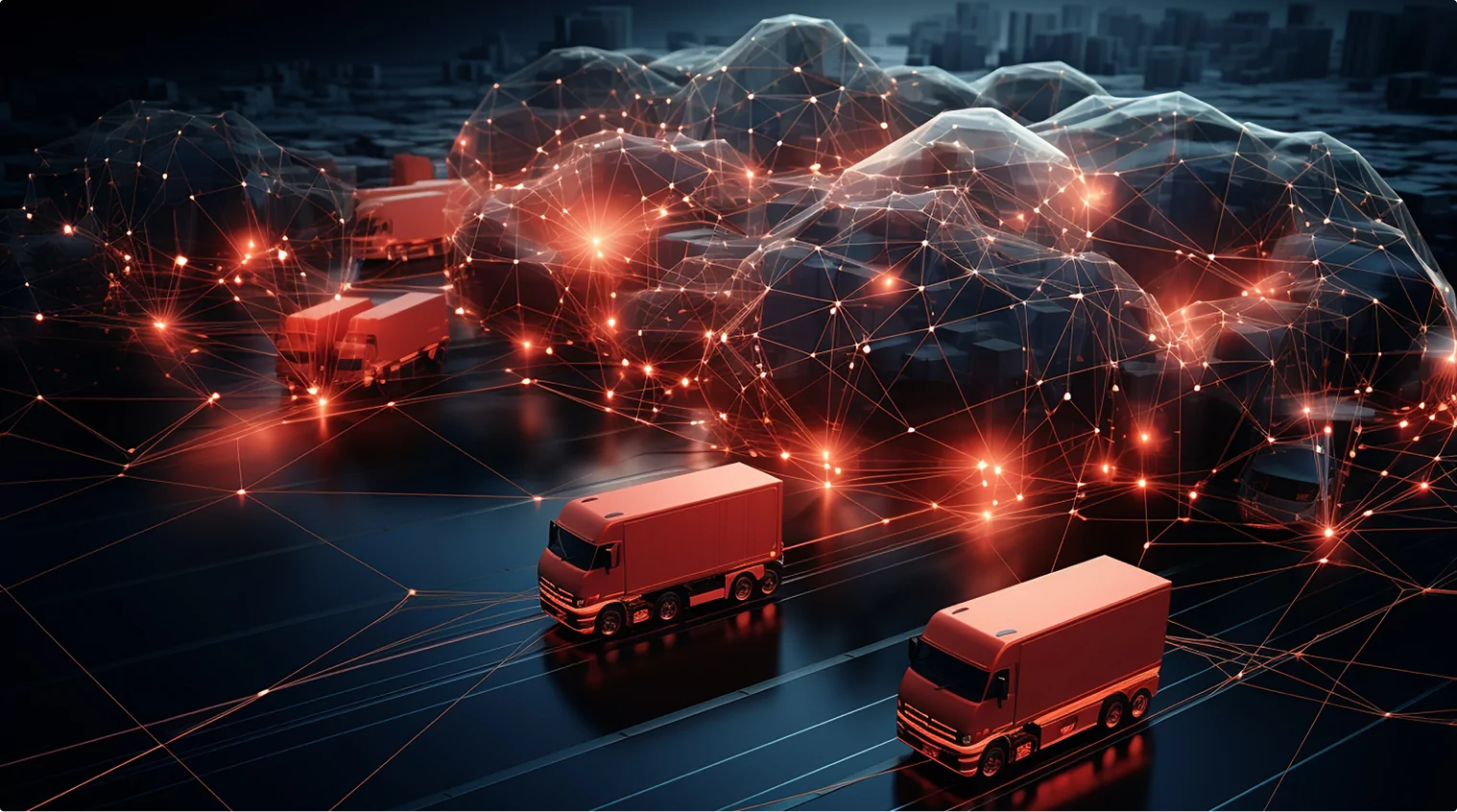The logistics industry is the backbone of global trade, facilitating the movement of goods and services across vast distances. Traditionally, logistics operations have been complex and often inefficient, relying heavily on manual processes and human decision-making. However, the advent of artificial intelligence (AI) is transforming logistics, making transportation and delivery more efficient, cost-effective, and reliable. AI-powered logistics is not just an enhancement; it represents a fundamental shift in how goods are moved, stored, and delivered, promising a future where logistics operations are smarter and more responsive to changing demands.
The Role of AI in Logistics
AI technologies, including machine learning, predictive analytics, and robotics, are being integrated into various aspects of logistics to streamline operations, enhance decision-making, and improve customer satisfaction. The following are key areas where AI is making a significant impact:
- Route Optimization: AI algorithms analyze vast amounts of data, including traffic patterns, weather conditions, and delivery windows, to determine the most efficient routes for transportation. This reduces travel time, fuel consumption, and operational costs. For instance, companies like UPS use AI-driven route optimization to save millions of miles and gallons of fuel annually.
- Predictive Maintenance: AI-powered predictive maintenance uses data from sensors embedded in vehicles and equipment to predict when maintenance is needed. This helps prevent breakdowns and reduces downtime, ensuring that transportation fleets operate smoothly. Predictive maintenance is particularly valuable for airlines, railways, and shipping companies where equipment reliability is crucial.
- Inventory Management: AI enhances inventory management by predicting demand more accurately and optimizing stock levels. Machine learning models analyze historical sales data, seasonal trends, and market conditions to forecast demand, reducing overstocking and stockouts. Retail giants like Amazon use AI to manage their vast inventories efficiently, ensuring products are available when customers need them.
- Automated Warehousing: AI-powered robots and automated systems are revolutionizing warehousing operations. Robots can perform repetitive tasks such as picking, packing, and sorting with high precision and speed. AI systems manage these robots, optimizing their movements and tasks to maximize efficiency. For example, Amazon’s fulfillment centers use AI-driven robots to streamline warehouse operations, significantly reducing processing times.
- Customer Experience: AI enhances the customer experience by providing real-time tracking, personalized recommendations, and faster delivery times. AI chatbots handle customer inquiries efficiently, offering support and information around the clock. Companies like DHL use AI to provide customers with accurate delivery estimates and timely updates, improving satisfaction and loyalty.
- Fraud Detection: AI systems detect fraudulent activities in logistics operations by analyzing transaction data and identifying anomalies. This is crucial for protecting the integrity of supply chains and ensuring the security of goods in transit. Machine learning models can quickly identify and flag suspicious activities, allowing for prompt investigation and action.
Case Studies and Applications
E-commerce: E-commerce companies rely heavily on AI to manage their logistics operations. Alibaba, for instance, uses AI to predict demand, optimize inventory, and manage warehouse operations. During major sales events like Singles’ Day, AI ensures that millions of orders are processed and delivered efficiently.
Shipping and Freight: AI is transforming the shipping industry by improving route planning and fleet management. Maersk, a global shipping giant, uses AI to optimize shipping routes, reducing fuel consumption and improving delivery times. AI systems analyze weather patterns, port congestion, and shipping schedules to determine the best routes for vessels.
Last-Mile Delivery: The last mile of delivery is often the most challenging and expensive part of the logistics chain. AI helps companies overcome these challenges by optimizing delivery routes and managing delivery schedules. Startups like Starship Technologies use AI-powered delivery robots to navigate urban environments and deliver goods directly to customers’ doorsteps, reducing delivery times and costs.
Air Transport: In the aviation industry, AI is used for predictive maintenance, optimizing flight routes, and improving cargo handling. Delta Airlines uses AI to analyze flight data and predict potential maintenance issues before they cause delays. This proactive approach enhances operational efficiency and minimizes disruptions.
Challenges and Considerations
While AI offers substantial benefits for logistics, there are challenges that organizations must address:
- Data Quality and Integration: The effectiveness of AI in logistics depends on the availability and quality of data. Integrating data from disparate sources and ensuring its accuracy is a significant challenge. Organizations must invest in robust data management and integration solutions to harness the full potential of AI.
- Security and Privacy: AI systems in logistics handle sensitive information, including customer data and proprietary business information. Ensuring the security and privacy of this data is crucial to prevent breaches and maintain trust. Implementing strong cybersecurity measures and compliance with data protection regulations are essential.
- Scalability: Scaling AI solutions across large and complex logistics networks can be challenging. Organizations must ensure that their AI systems can handle increasing volumes of data and transactions without compromising performance. Scalability requires robust infrastructure and continuous optimization.
- Regulatory Compliance: Logistics operations are subject to various regulations, including those related to transportation, safety, and labor. Ensuring that AI systems comply with these regulations is crucial to avoid legal issues and operational disruptions. Organizations must stay abreast of regulatory changes and adapt their AI solutions accordingly.
Conclusion
AI-powered logistics is revolutionizing the transportation and delivery industry by enhancing efficiency, reducing costs, and improving customer satisfaction. From route optimization and predictive maintenance to automated warehousing and fraud detection, AI technologies are driving significant improvements across the logistics value chain. However, to fully realize the benefits of AI, organizations must address challenges related to data quality, security, scalability, and regulatory compliance. By doing so, they can leverage AI to create smarter, more responsive logistics operations that meet the demands of the modern world. The future of transportation and delivery lies in AI-powered logistics, promising a more efficient and reliable global supply chain.




